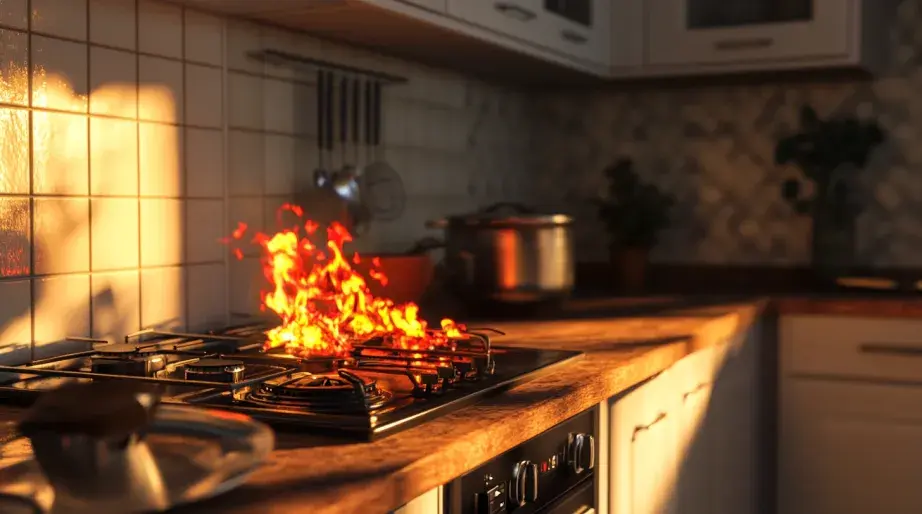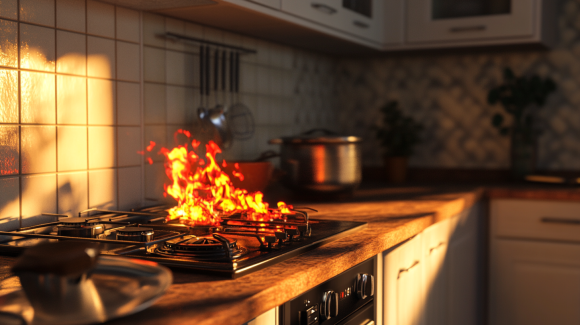House fires: a homeowner’s deadliest foe?


One of the biggest threats to the security of our homes is fire. Sure, typhoons and floods caused by rainstorms pose a significant risk, particularly in Hong Kong. But it isn’t just natural disasters that cause damage to the home. House fires can be deadly and extremely destructive. And all too often these incidents are entirely manmade.
Fires in the home are caused by a range of factors. Outdated, damaged or incorrectly installed electrical wiring; poor fire safety practices among the occupants; or simply by overloading plug sockets. The causes are legion and no homeowner is completely safe from the threat of fire.
In Hong Kong house fires are a strikingly common occurrence, as recent headlines attest. In June, a fire broke out at a residential unit in Tseung Kwan O. In that incident, one person was injured and 50 were evacuated. In the same month, a fire erupted at a serviced apartment in the busy commercial district of Causeway Bay, described by firefighters as “extremely intense”. And last year, a blaze in an apartment building in Jordan led to the death of five people and injured 27, some of them seriously. All recent incidents, all with serious consequence – one of them deadly.
So what can you do, as a homeowner, to protect your flat from the risk of fire? What steps should you consider taking to protect what is a significant financial asset?
Sound the alarm
Thankfully there are ways you can enhance your home to reduce the likelihood of a fire. The Fire Services Department recommends installing stand-alone, battery-operated fire detectors. Having one or more installed can literally save your life, providing you and your loved ones with early fire detection so you can vacate the premises quickly.
But what about protecting the property itself? Whatever the age of your home, make sure that the electrical wiring was installed by an accredited professional. Also, and especially in the case of older buildings, ensure your wiring is regularly inspected and tested. Similarly, white goods, such as freezers, fridges, washing machines, tumble dryers and dishwashers, can all pose a fire risk if they aren’t maintained properly, have faulty wiring or are generally in poor condition. If in doubt, get them tested by a professional. And always make sure you aren’t overloading sockets with your electrical goods. Doing so can result in a build-up of heat, leading to a blaze.
One area of the house that’s regularly associated with heat is, of course, the kitchen. If there is a gas leak from the stove, it could potentially lead to a catastrophic explosion. Electric stoves present a safer alternative, as they don’t emit carbon monoxide and significantly reduce the risk of such hazards.
Finally, the one thing you should never ignore is fire insurance. Products on the market generally cover the structure of your home if it is damaged by fire, and protects you against loss due to explosions caused by domestic boilers or gas appliances. To have comprehensive protection, you may consider taking out personal accident insurance which covers medical expenses and major burns due to accident. For household items, it is generally recommended that homeowners and tenants take out a suitable home insurance policy that offers protection against fire damage.
When it comes to protecting your home against fire, don’t take any chances and ensure you’ve taken all possible precautions.
If you have any queries regarding home and fire Insurance, please feel free to contact us ![]() or find out more about our insurance plans:
or find out more about our insurance plans:
View product
Read more:
Take early precautions for a safe typhoon season
Renting your next home with an extra layer of security
Learn more about EASY Claims and file your claims online anytime, anywhere.



